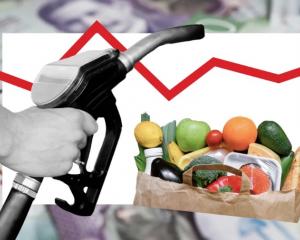
New Zealand's terms of trade - the ratio of export prices to import prices - rose 4.4% for the March quarter, due to goods export prices remaining steady and goods import prices falling, Statistics New Zealand business prices manager Sarah Williams said.
"With import prices falling and export prices remaining steady, New Zealand's terms of trade rose 4.4%,'' she said.
Terms of trade is a measure of the purchasing power of New Zealand's exports abroad.
ASB rural economist Nathan Penny said excess global capacity and resulting global deflation had sped up this terms of trade cycle, and helped make it shallower than previous cycles.
"Indeed, New Zealand import prices now sit at 30-year lows,'' he said.
Westpac economist Michael Gordon said the 4.4% rise was well ahead of the median market forecast of 1%.
The improvement in the balance was driven entirely by the imports side, where prices fell by 4.3%.
"World oil prices fell sharply in the early part of this year, resulting in a 24% drop in prices for petroleum imports,'' he said.
Petroleum was one of New Zealand's largest import items, accounting for 9% of the total goods import bill, but that share had halved in recent years as oil prices plunged.
Import prices were down a little across most other categories as well, including food, plastics and machinery.
He said export prices were flat overall, with mixed results across sectors.
Dairy export prices rose 5.1% in the March quarter, reflecting modest gains in auction prices late last year, wood prices rose 4.8% and manufactured goods prices were up 1.2%, while meat export prices fell 6.2%.
"Oil export prices also fell by 24%, but dwindling volumes mean that this is fading in importance as an export item,'' Mr Gordon said.












